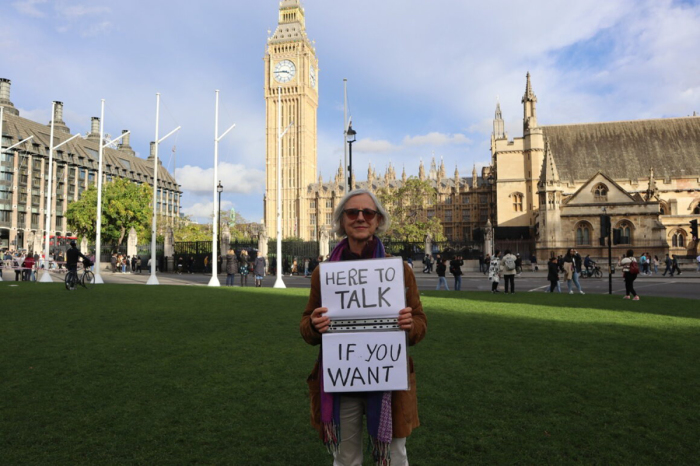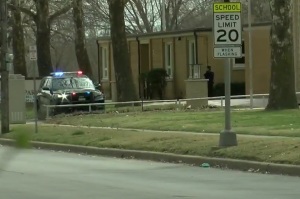British pensioner on trial for offering to talk to women in crisis pregnancies

A retired medical scientist from Bournemouth, England, is set to face trial for her actions near an abortion facility, where she offered to engage in conversations with women experiencing crisis pregnancies. The case is about the Public Spaces Protection Order (PSPO), conflicting with free speech.
Livia Tossici-Bolt, 62, found herself in legal trouble after holding a sign that read “Here to talk, if you want to” in proximity to an abortion clinic in Bournemouth, said the human rights and legal group ADF International, which is representing the pensioner. The simple act led to her being accused of violating a local “buffer zone” ordinance, which prohibits any form of expression that could be seen as approving or disapproving of abortion.
Tossici-Bolt maintains she did not infringe upon the PSPO and it’s her right to offer consensual conversations under Article 10 of the Human Rights Act. Her refusal to pay the Fixed Penalty Notice issued by local authorities has resulted in her facing charges, with a trial pending at Poole Magistrates’ Court, the group said.
“We all condemn harassment. But ‘buffer zones’ are going so far even to criminalize activities which are peaceful and helpful,” Tossici-Bolt said. “For several years now, I have been offering a helping hand to women who would like to consider other options to abortion, and pointing them to options where they can receive financial and practical support, if that’s what they would like. There’s nothing wrong with offering help. There’s nothing wrong with two adults engaging in a consensual conversation on the street. I shouldn’t be treated like a criminal just for this.”
The U.K. government recently established buffer zones around abortion facilities through the PSPO, aiming to prevent any form of influence. This legislation has led to controversies and criticisms, particularly regarding the potential infringement on free speech and the right to engage in consensual conversations.
The Home Office has been involved in drafting guidance to ensure these rights are protected amid calls from some members of Parliament to revoke these protections.
Jeremiah Igunnubole, legal counsel for ADF U.K., criticized the vague nature of local buffer zone laws and the criminalization of individuals like Tossici-Bolt for offering assistance to women in need. He advocated for the protection of freedom of thought and speech, both within and outside buffer zones, aligning with international law standards.
In a related incident, Tossici-Bolt experienced confrontation by officers for allegedly breaching the buffer zone, an accusation that was later retracted by the Bournemouth, Christchurch & Poole Council. They apologized for the distress caused to Tossici-Bolt, acknowledging the confusion over her location relative to the buffer zone.
Igunnubole further commented on the broader implications of such enforcement, questioning the legitimacy of criminalizing pro-life viewpoints in public spaces and criticizing the portrayal of buffer zone bans as measures against harassment and intimidation. He pointed out the absence of convictions for harassment and intimidation among pro-life vigil volunteers in the U.K. over the past four decades, challenging the narrative that these volunteers pose a significant threat.





























